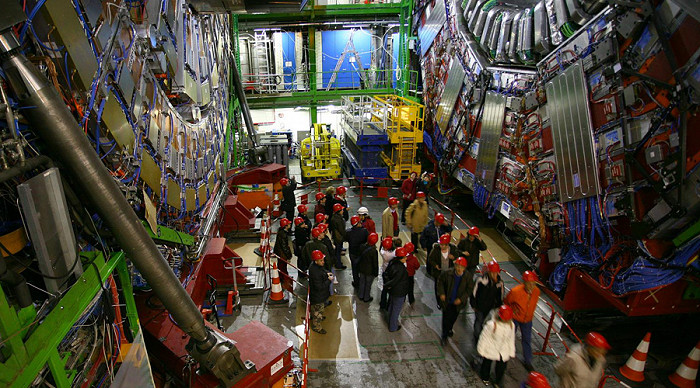Managing your booking with Club Europe couldn’t be easier.
Click below for details of our user-friendly client portal.
Find out moreTel: +44 208 772 6446



“ The trip was brilliantly organised and run by yourself and your colleagues.”
Marc, Teacher of Science, Gran Canaria

We're delighted to offer this unique science tour based in Geneva, Switzerland, featuring a visit to CERN, the European organisation for Nuclear Research. CERN operates the world's largest particle Physics laboratory and employs nearly 8,000 scientists and engineers representing 608 universities and research facilities.
Day 1
Depart school for travel to Geneva. Transfer to accommodation and enjoy time to explore the local area.
Day 2
Morning sightseeing in Geneva, with a chance to visit Saint Peter's Cathedral or the Place Neuve. Afternoon visit to the Red Cross museum.
Day 3
A day at CERN, including a guided tour of its exhibitions, experimental areas and other facilities. An evening of bowling.
Day 4
Day spent on Geneva's beautiful lakefront. Morning visit to the see the popular 450ft high Jet D'eau machinery (water fountain). Take a river trip and stroll across Mont-Blanc Bridge to see Geneva's famous Flower Clock.
Day 5
Morning free for final sightseeing before travelling back to school.
Head of Science and Technology at Sevenoaks School in Kent, who has led over 20 Physics trips to CERN: “Working in Physics has to be hugely collaborative because there are any number of experiments being undertaken by thousands of scientists around the world. These trips enable students to communicate with the research world as well as with other like-minded people and they really help.” Got a question for Dr. Galloni? We’ll put you in touch. Watch a film of Dr. Galloni talking about her Science trips to CERN.
Enjoy boat trip on this magnificent, picturesque lake that border both France and Switzerland.
A guided tour will take your through a number of important and fascinating building, where many important Human Rights activities take place.
This magnificent 100m high fountain makes a real impact on those that view it. You can also visit the machinery below ground that makes the fountain spring into life.
This beautiful, 5m clock was constructed in 1955 as a symbol of the city’s watchmaker history, and can be found on the edge of the Jardin Anglais.
Yes, there are many advantages to this. One is that greater numbers sign up which means a lower tour price per student. Another is that a diverse (two-subject) itinerary can broaden the horizons of both ‘groups’ though, of course, we can create separate agendas for each if preferred.
Yes. We include a comprehensive insurance package in every tour unless instructed otherwise. We can provide you with the details.
We offer you all the advice and support you require - every step of the way. Rest assured; we organise everything.



“ The trip was brilliantly organised and run by yourself and your colleagues.”
Marc, Teacher of Science, Gran Canaria
Click below for details of our user-friendly client portal.
Find out more